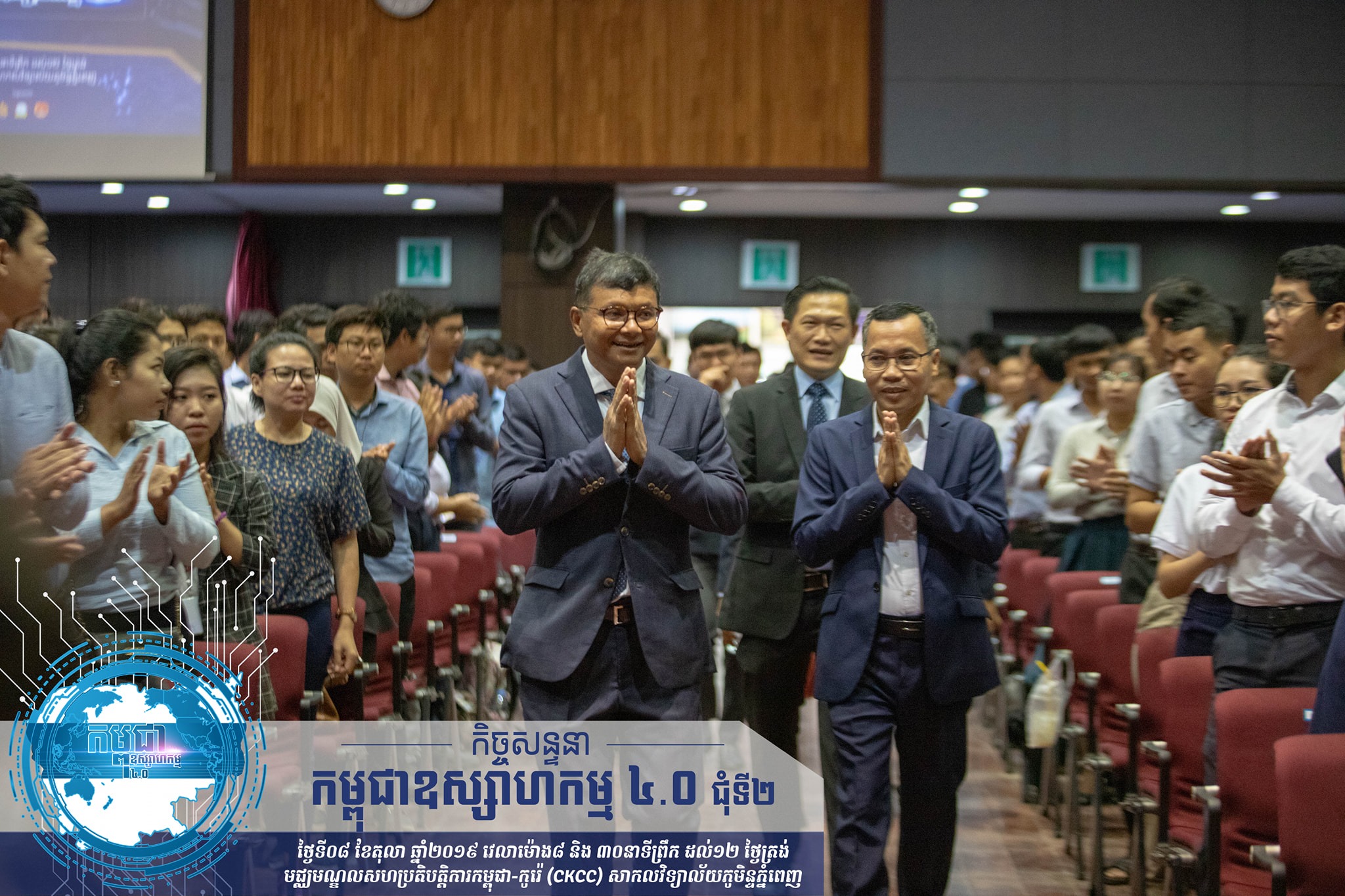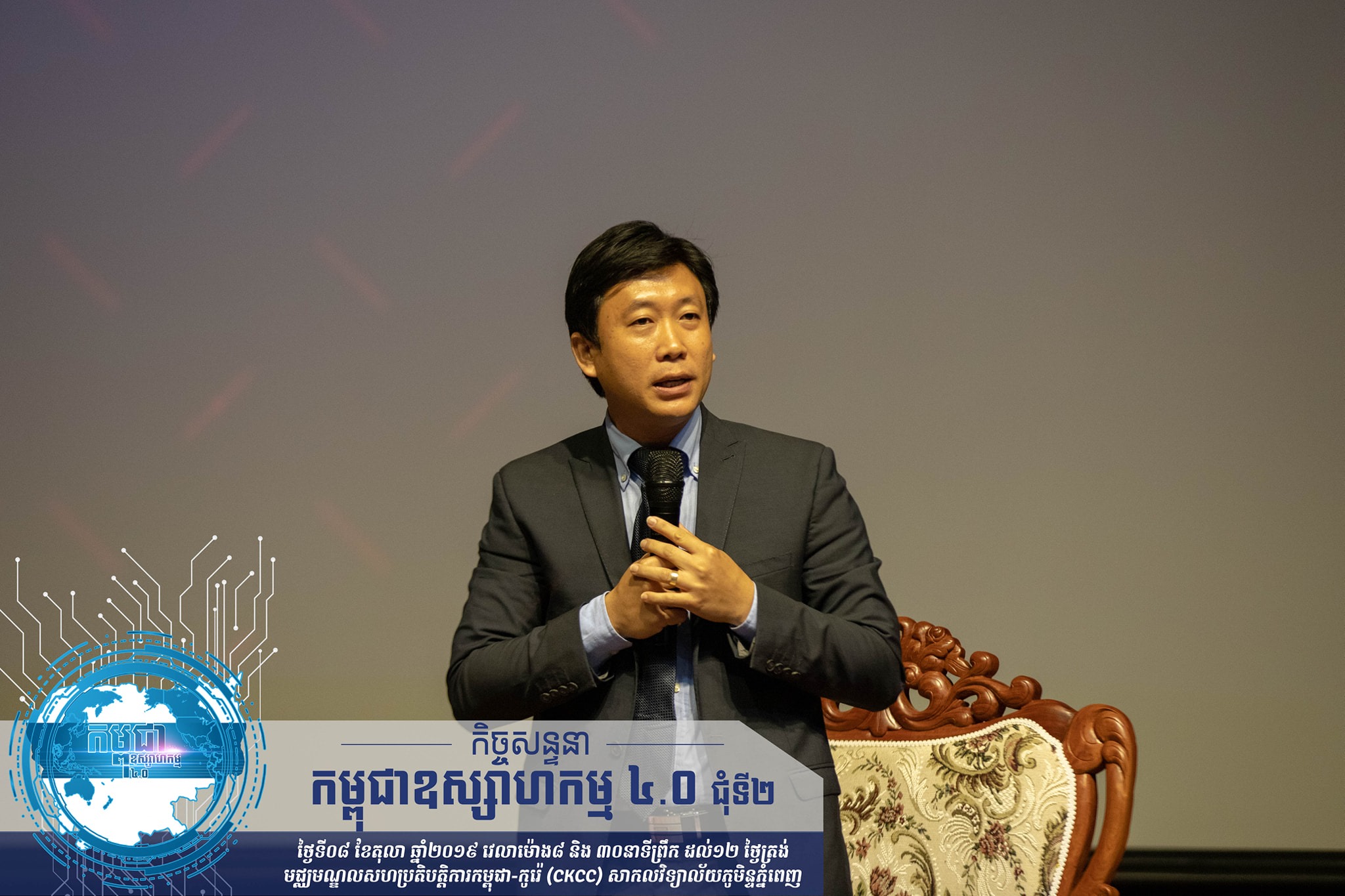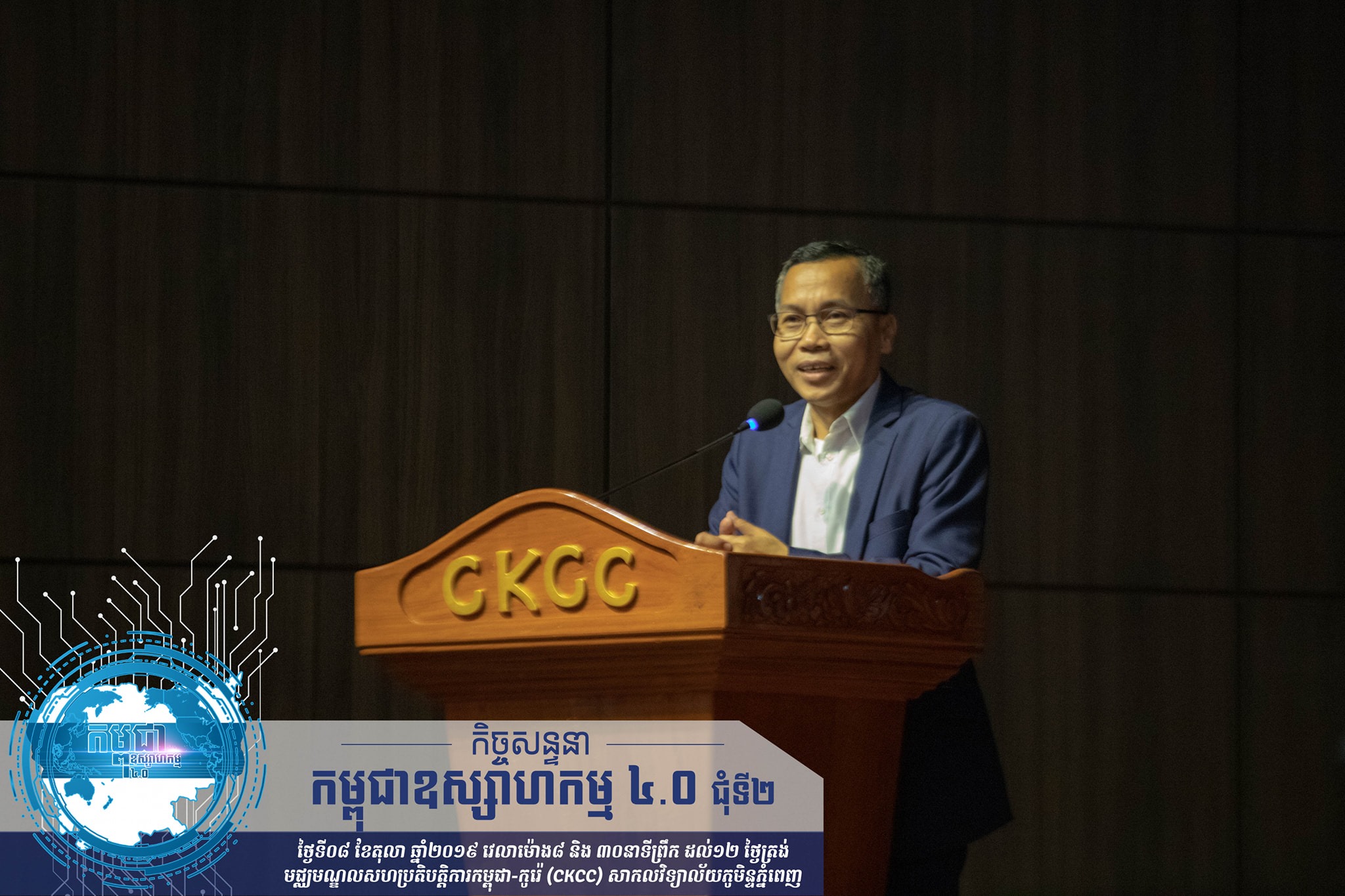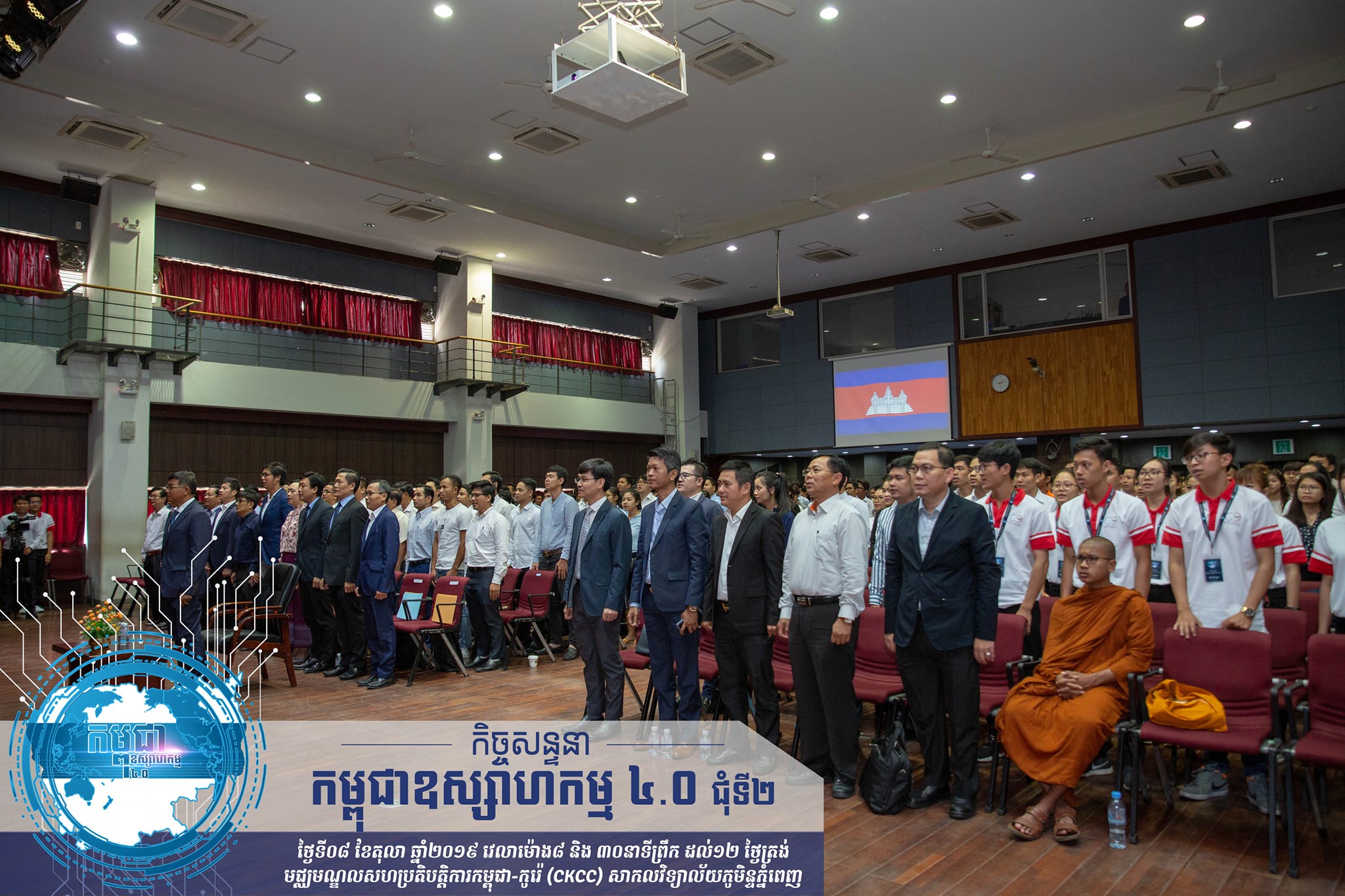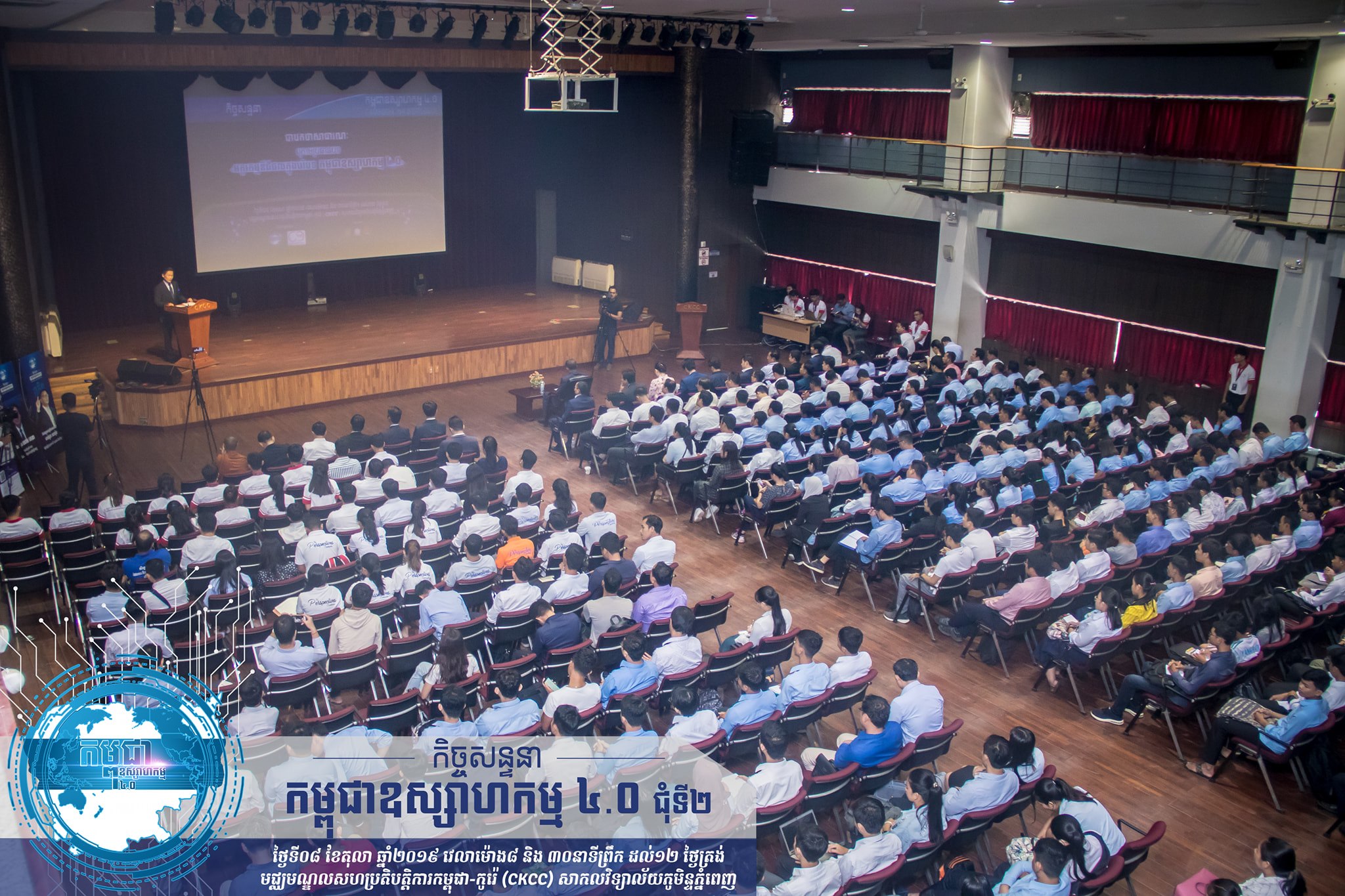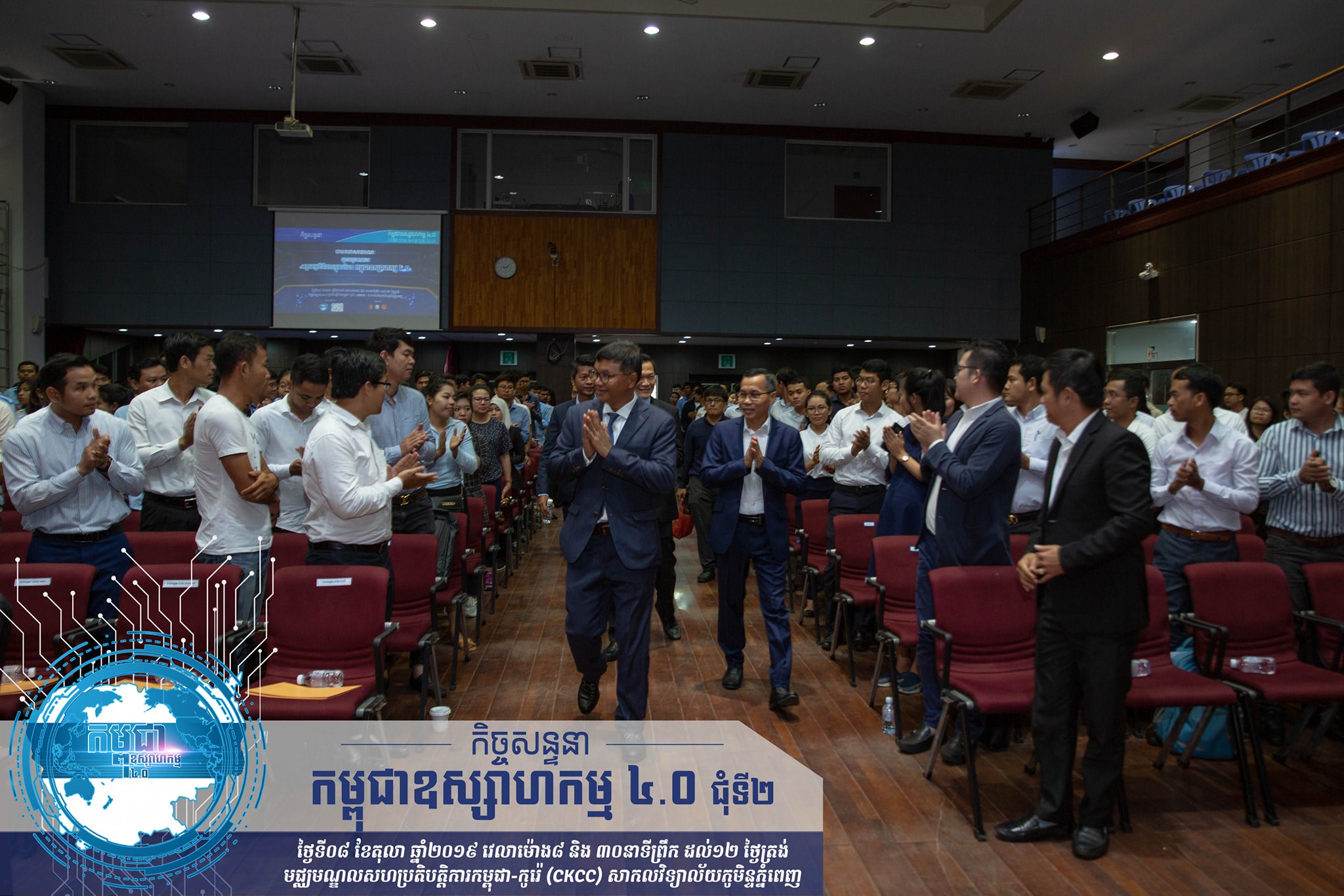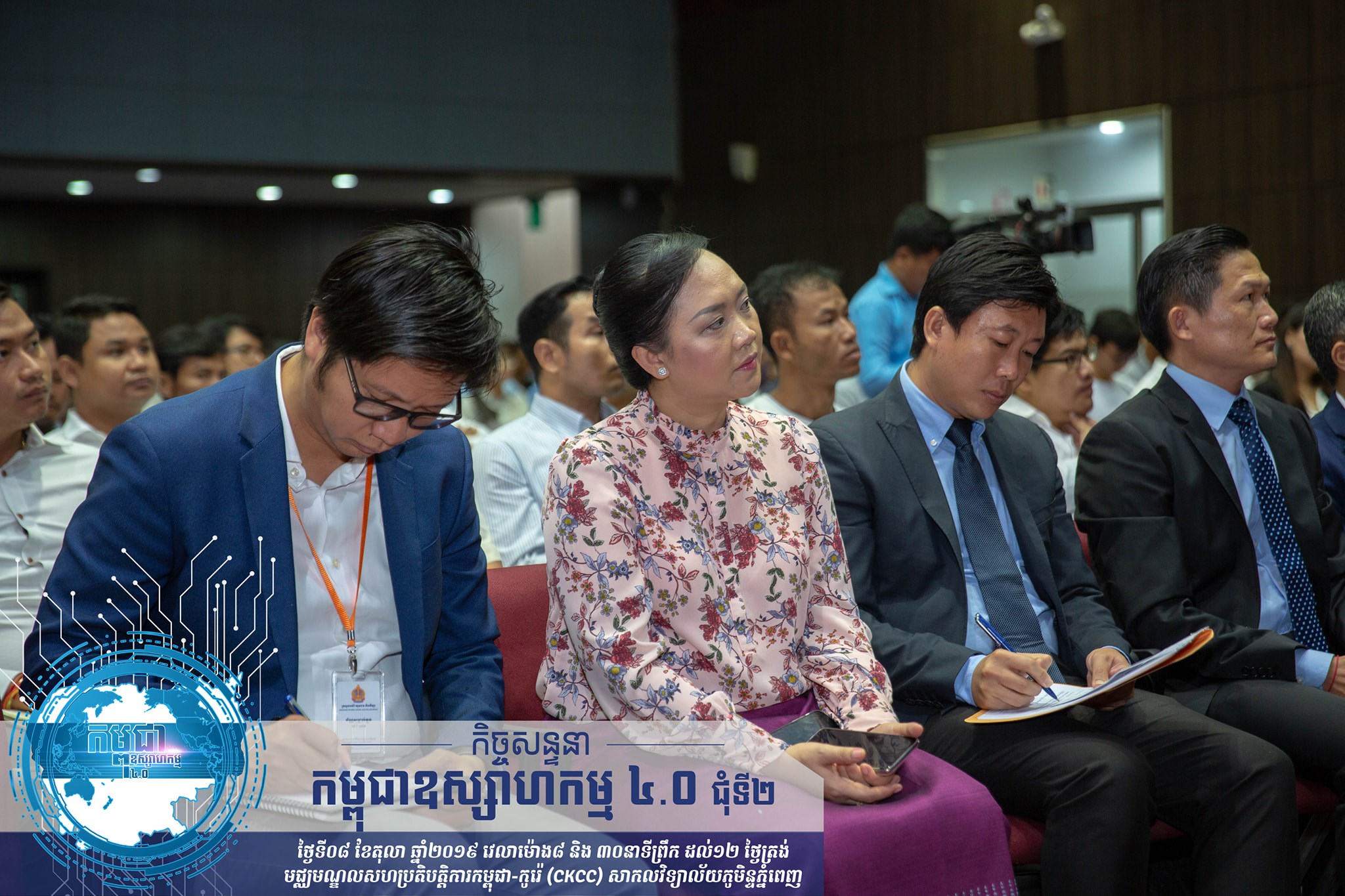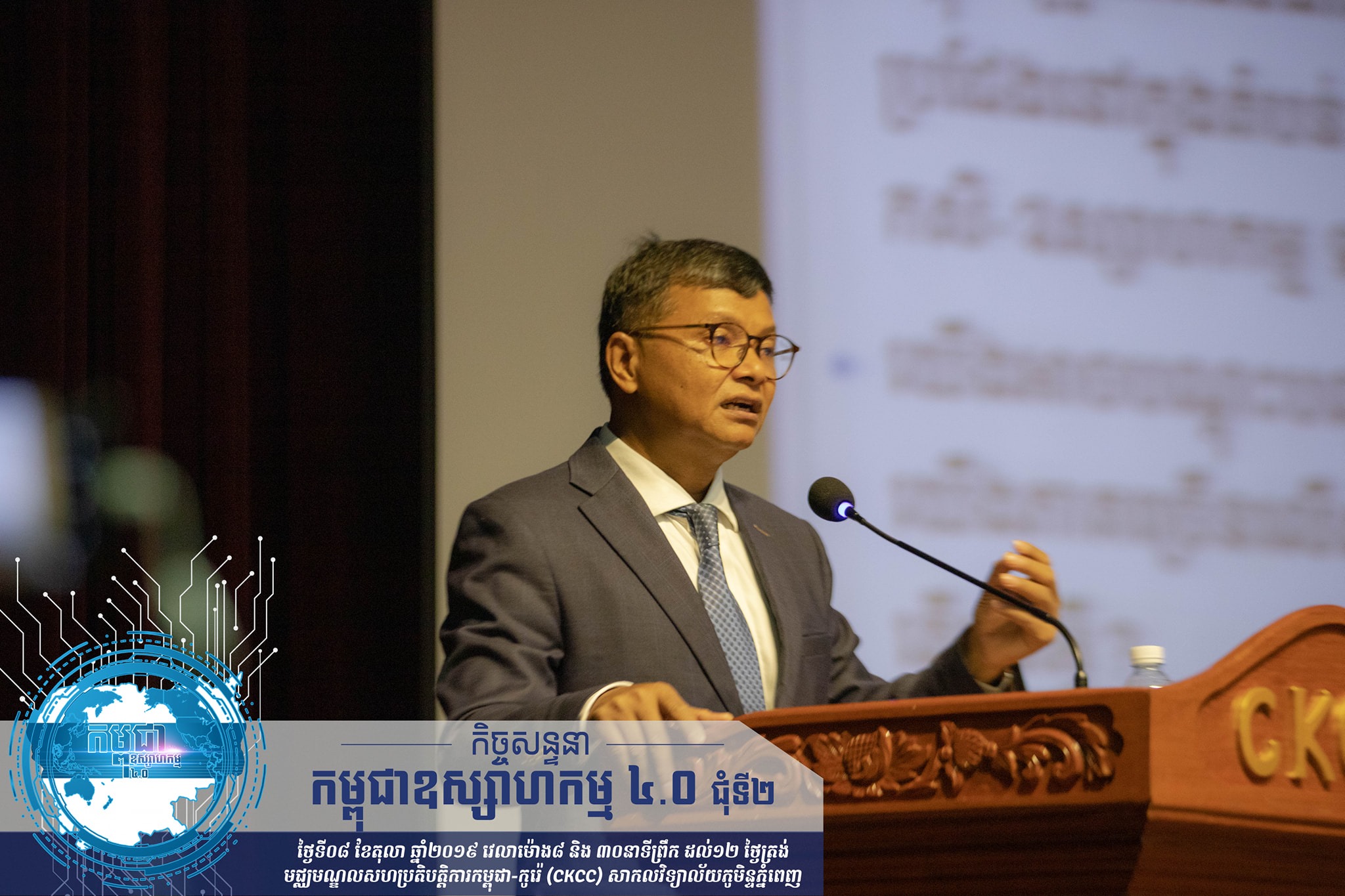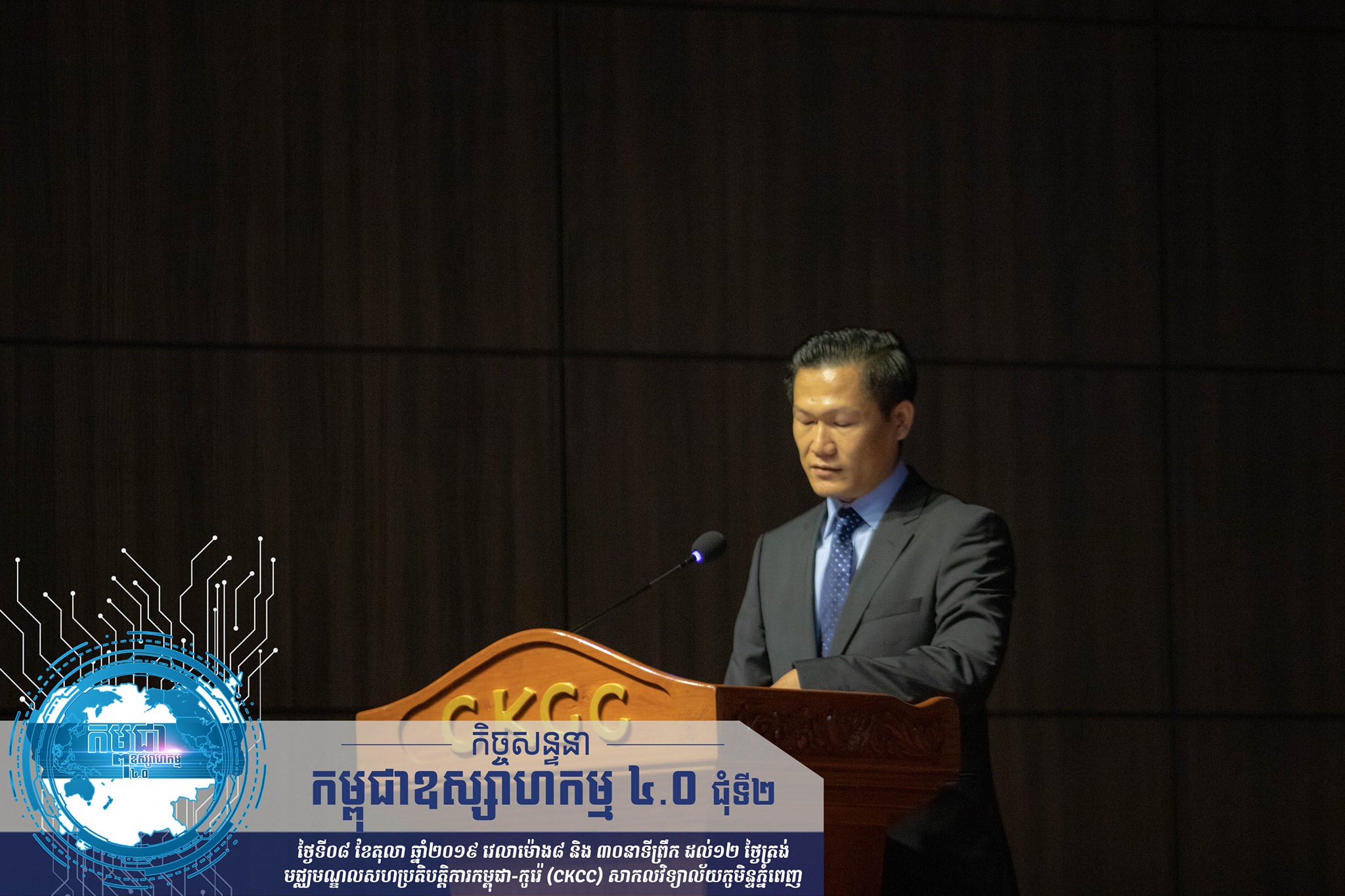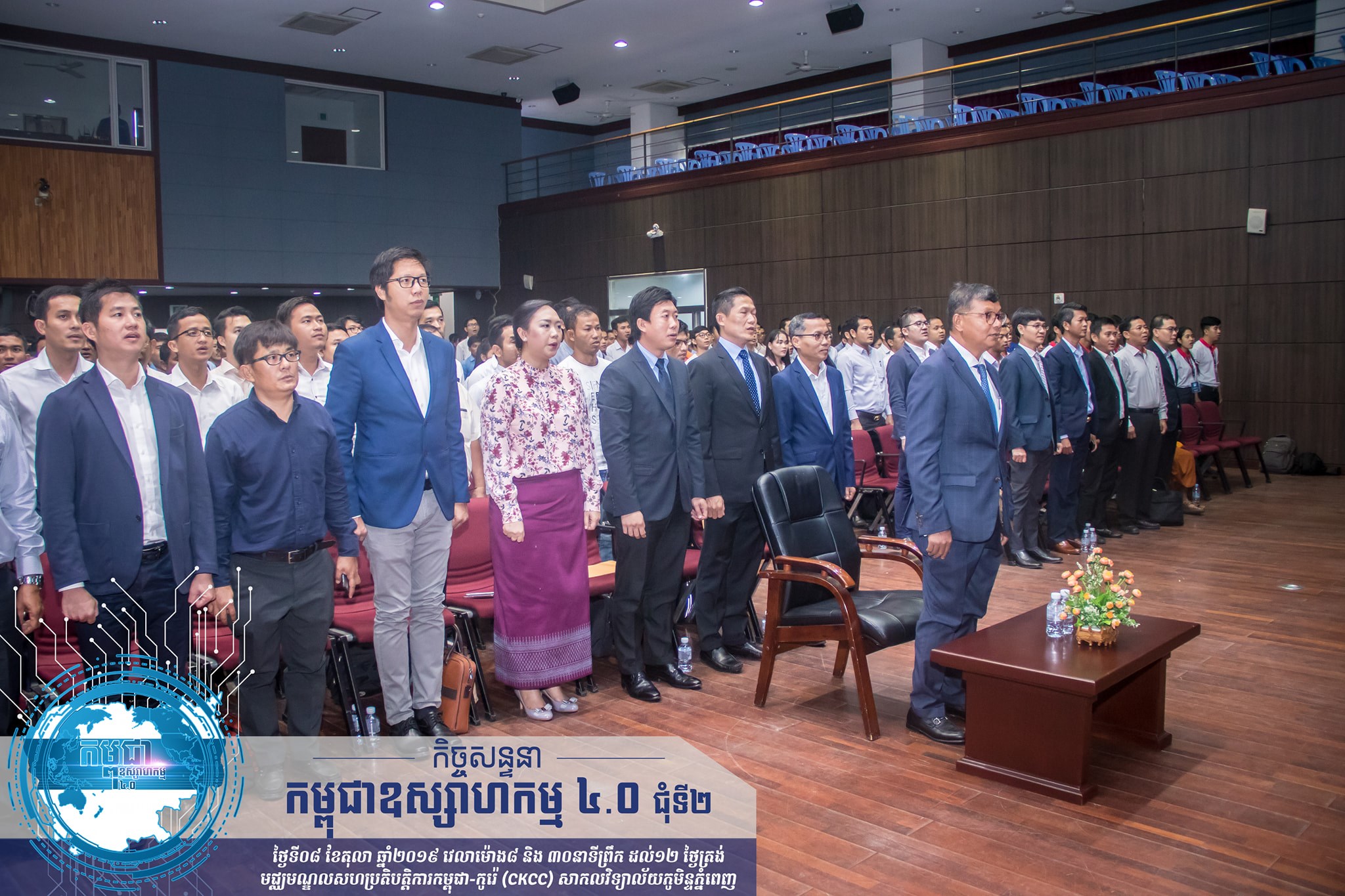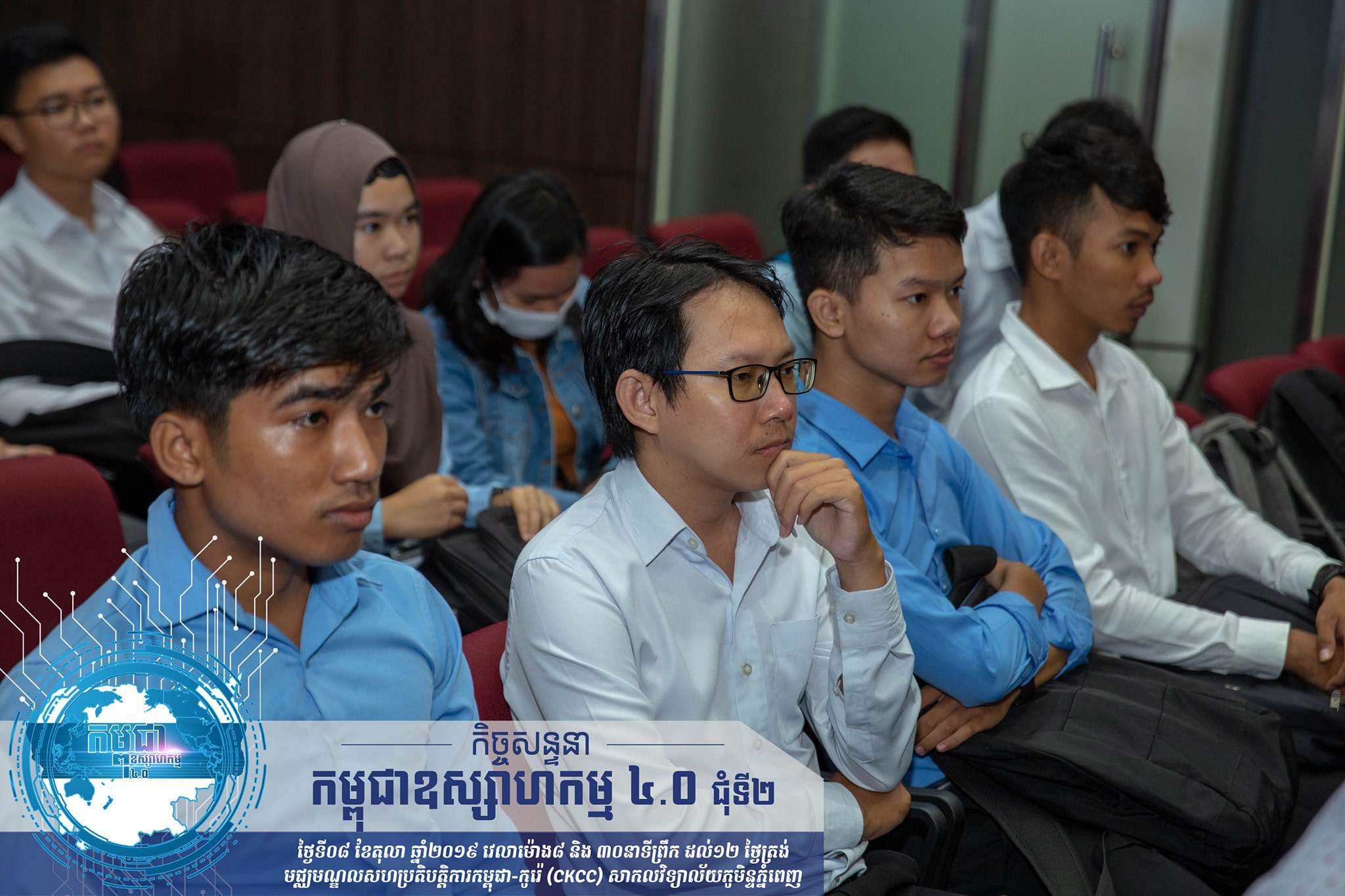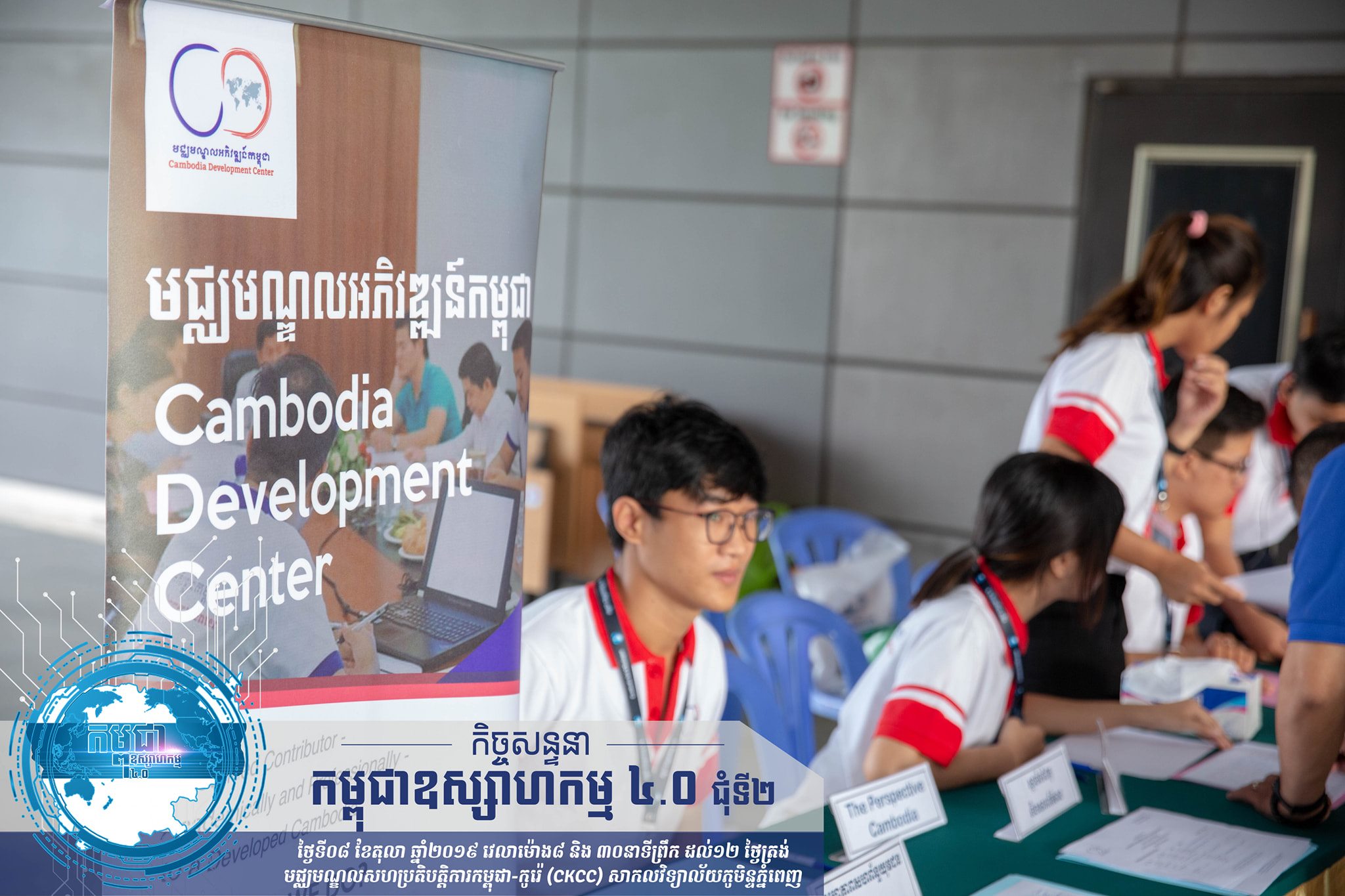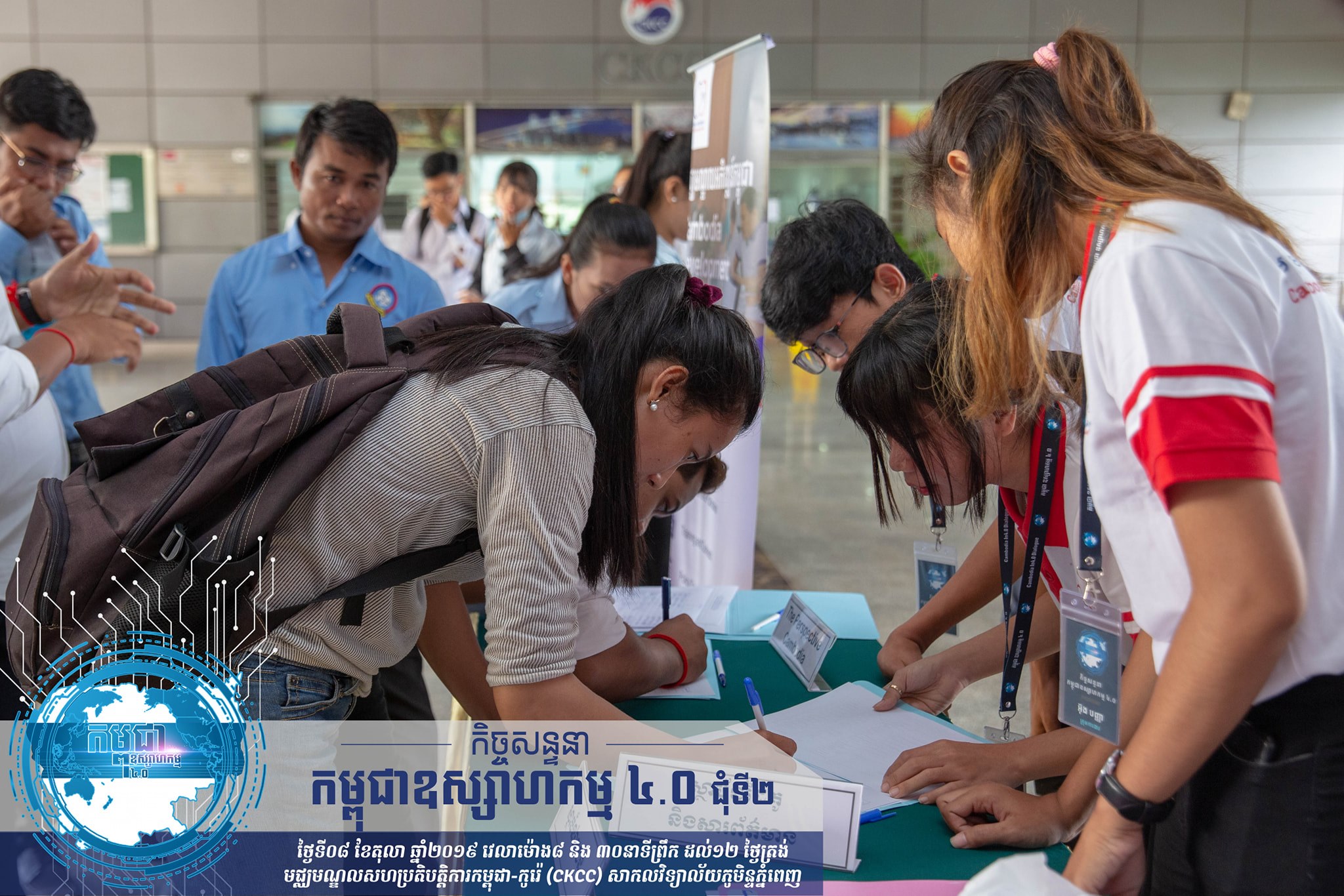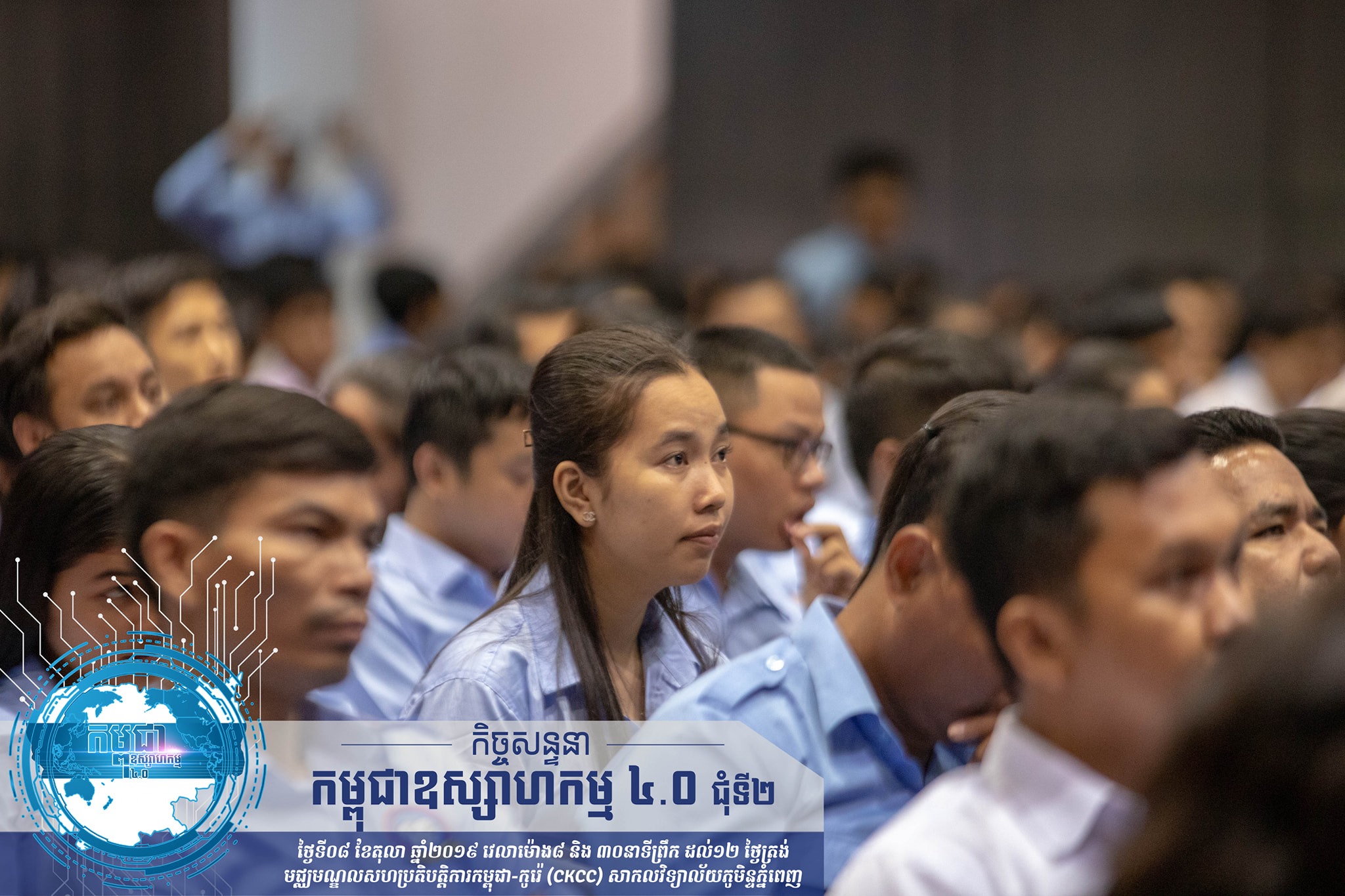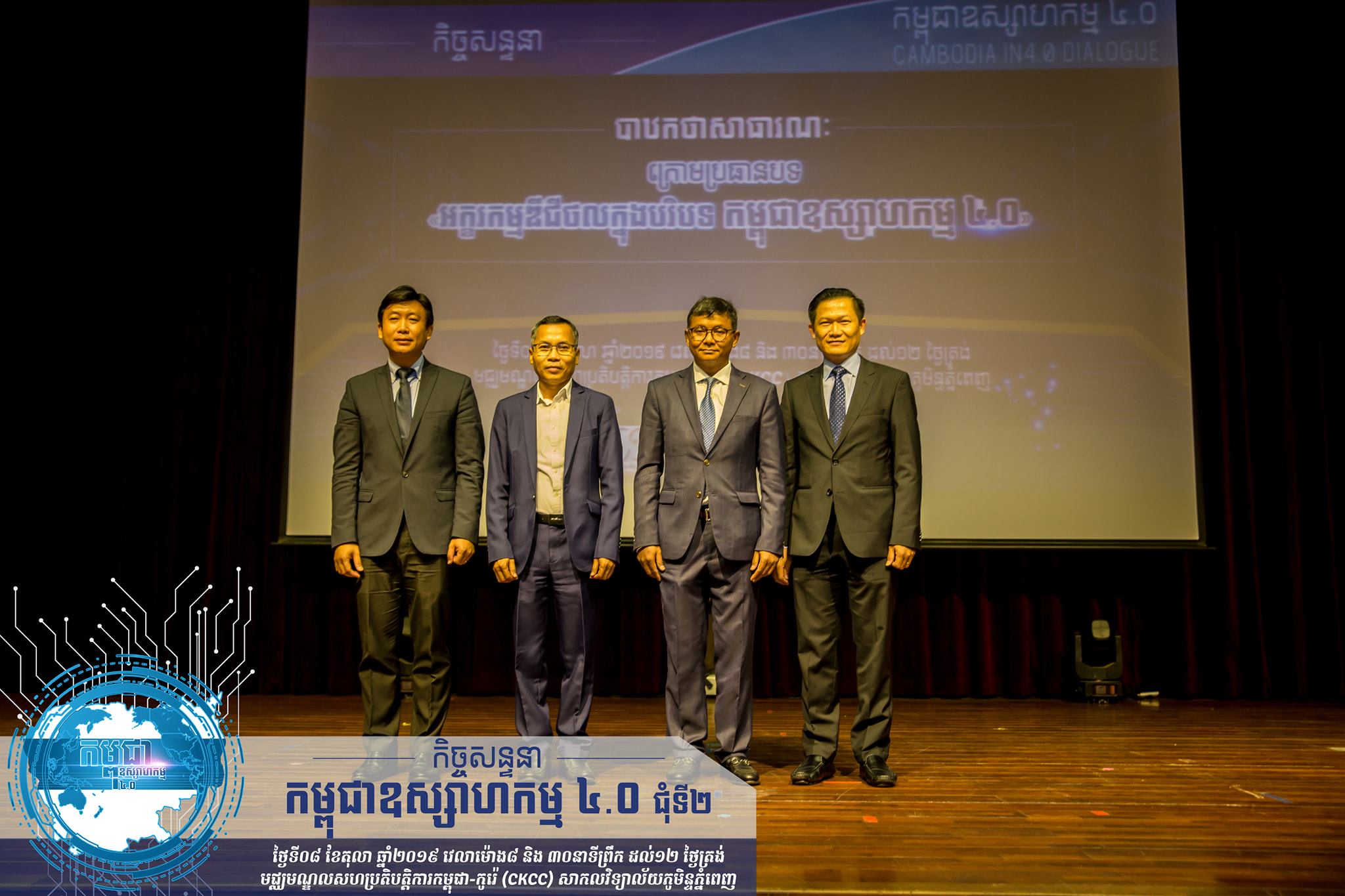Speaker:
H.E. Dr. Hang Chuon Naron, Minister of Education, Youth, and Sport
Public Lecture: “DIGITAL LITERACY” IN THE CONTEXT OF CAMBODIA IN4.0
It is believed that the world now has witnessed the coming of the fourth industrial revolution as technologies have become even more advanced as well as ubiquitous. With the advent of digital breakthroughs in various fields and sectors, everyone is surrounded with digital equipment, smart devices, and many other modern gadgets which help improve the quality of life and professional experiences. In order for a digital society to take place, it requires that its citizens possess at least basic knowledge of information and communication technology (ICT) to make use of those technologies to serve their purposes. For this reason, digital literacy is a necessary element for the development of a thriving digital society and digital economy.
There are different definitions of digital literacy, and the term can also be put in both literal and technical categories. According to Gilster (1997), he simply defines digital literacy as an ability to comprehend and make use of information from different types of digital sources. A more comprehensive definition provided by Spires and Bartlett (2012) takes into account of an evaluative consideration pertaining to digital literacy. They define digital literacy as an ability to locate and consume, create, and communicate digital content. Creating digital content can be done by various means, such as writing and texting on digital devices, and making video content using video editing software. Being able to communicate the content to others on online platforms and social media networks like Facebook and Twitter is also considered as a part of digital literacy.
The European Commission, the European Parliament, and the European academics identify digital literacy with some basic ICT skills and use the term interchangeably with digital competence, digital skill, and competence. Digital literacy enables youth to take advantage of digital resources to serve their educational purposes and improve self-development. In the digital economy traditional economic activity has been transformed into a new one performed by interconnectedness among technologies, data, people, organizations, and machines which is called hyper-connectivity, due to the use of the internet and other technologies such as sensors, the Internet of Thing (IoT), and virtual systems. As a result, to participate in the digital economy, citizens must be digitally competent enough to engage in e-businesses and other digital economic activities. Perhaps, Estonia is the leading country whose society has successfully undergone a tremendous technological transformation in almost all essential aspects of society. The Estonian government started to introduce e-Governance since 1997 and has continued to invest in many other e-solutions such as e-Tax, digital ID, i-Voting, Blockchain, and e-Resident. One of the contributing factors in the success of the digital transformation of the country is the promotion of digital literacy in education.
Under the chairmanship of Thailand in 2019, ASEAN aims to push the region forward by taking advantage of the fourth industrial revolution and further developing its digital economy. Although ASEAN has enormous potential for digital transformation, the region still encounters many challenges regarding digitalization and technology. The most concerning problem is the digital divide within ASEAN. For instance, while Internet users per 100 of the population of Singapore, Malaysia, and Brunei were 70 to 80, the user density was less than 20 in Cambodia and Laos. ASEAN countries also share a common barrier to a robust digital economy which is a lack of a skilled workforce that has rendered ASEAN’s competition in information technology weak.
In an informed and inclusive society, citizens must have access to information and opportunities so that they will not be under the risk of marginalization. ASEAN could take advantage of digital media and the internet to create such society by enhancing digital literacy of its citizens in accordance with four fundamental elements of digital literacy such as basic competency in using digital devices, skills to evaluate the authenticity of online information, carefulness of choosing appropriate information to share online, and the understanding of safe online behavior. Thus, digital literacy should be prioritized in education programs in order to equip citizens with digital literacy and competency in ASEAN.
Cambodia has also tried to adapt itself to a changing digital environment and technological advancements in order to achieve economic growth and socio-economic development. In this regard, a Working Group was formed by the Supreme National Economic Council in order to gather inputs to formulate a digital economy policy framework for the country. Still, Cambodia needs to respond to challenges in terms of human capital, digital infrastructure, governance, and digital innovations. The country also lags behind other ASEAN member states regarding digital activities. To cope with such problems and to achieve a full-fledged digital transformation in the country, long-term strategic planning in key areas is required. At the same time, the promotion of digital literacy and skills must be encouraged to allow Cambodian citizens to make the most of technologies.


